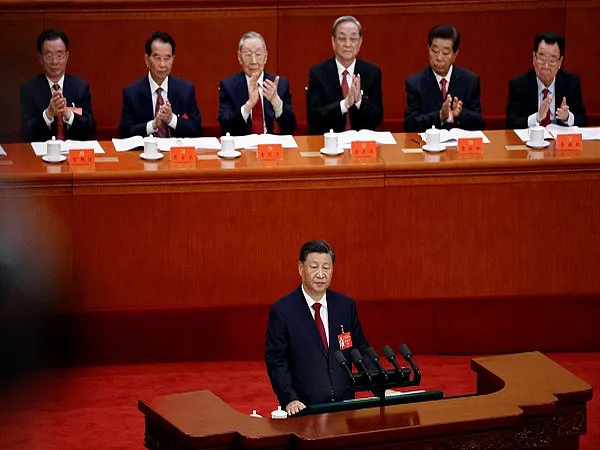The recent incident of manhandling of a pro-democracy Hong Kong demonstrator by Chinese consulate staff in Manchester has further deteriorated China-UK ties and also reflects ‘wolf warrior diplomacy’ practised by diplomats under President Xi Jinping, The Diplomat reported.
The violent action by the consulate staff ignited the China-UK diplomatic controversy and marks the latest sign of China’s new diplomatic style under Xi Jinping. In Manchester, Fiji, and around the world, the message is clear: fight back against foreign criticism, The Diplomat reported.
The Diplomat quoted Sky News interview in which China’s Consul General Zheng Xiyuan responded to photos showing him pulling the pro-democracy protester by the hair into consulate grounds. “He abused my country, my leader. It’s my duty,” Zheng argued.
His comments may appear hyper-nationalistic to foreign audiences, but only because Zheng is pitched for China’s domestic wave of patriotism.
The Manchester incident is not a lone episode. Earlier in October 2020, a Taiwanese diplomat in Fiji was hospitalized with a head injury after an altercation with two Chinese diplomats. Fighting allegedly broke out after the Chinese diplomats arrived uninvited to a Taiwanese National Day celebration and began photographing guests.
But Zhao Lijian, Foreign Ministry spokesperson, denied claims of the violence.
Zhao Lijian is considered among the earliest adopters of this diplomatic style and continues to receive promotions within Xi’s diplomatic core.
Patriotism, not peace, is the orienting element of China’s diplomacy under Xi Jinping. Chinese diplomats seemingly learned a critical lesson from Zhao’s career trajectory: measure success by domestic approval, not foreign metrics of competence, it reported.
Even in the face of global criticism and rebuke from the international community, China’s “brashest defenders” have continued their “wolf warrior diplomacy,” an increasingly assertive brand of fiery diplomacy.
Writing for the American weekly news magazine Newsweek, Jianli Yang said Chinese foreign ministry spokespersons have demonstrated once again that Beijing’s “wolf warrior diplomacy” remains fully mobilized, despite Xi Jinping’s June instruction to try to “control the tone, be open and confident as well as modest and humble.
This message was aimed to build a “credible, lovable, and respectable image of China.” “It is not that Xi Jinping isn’t powerful enough to rein in wolf warriors like Zhao–in fact, those warriors happen to fit perfectly with Xi’s true strategy,” Yang said.
The writer added that newly discovered nationalist confidence and professional posturing of Chinese diplomats were originally orchestrated by “Xi Jinping Thought on Diplomacy. This thought is a doctrine which borrows from the first generation of Chinese communist revolution leaders.”
As per the Newsweek article, a US research scholar identified seasoned revolutionary Zhou Enlai as “the progenitor of today’s wolf warriors.” Similarly, foreign policy researcher Connor Fiddler explained how Zhou coined the new mantra of diplomacy for the People’s Liberation Army: “the PLA in civilian clothing.”
“At the first gathering of new recruits, Zhou reportedly outlined the ethos of the CCP’s enterprise and declared that foreign affairs cadres are akin to soldiers. Changing the struggle from a military one to a diplomatic one was the mission Zhou gave to the new diplomats–who were mostly peasants, college students and former PLA generals. Zhou’s mantra has been followed by Chinese diplomats for generations,” the report said.
It may be mentioned that wolf warrior diplomacy is confrontational and combative, with its proponents loudly denouncing any perceived criticism of the Chinese government and its policies.

